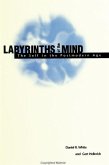In the twenty-first century the wonders of science show its magnificent potential for good. The scientific successes we enjoy are rooted in the modern way of thinking about physics. But success has fostered a myth that the dialectic of physics should be used in other areas. In the opening paragraph the author proclaims-and indeed others agree-a crisis has been reached in our evolving Western worldview. In this work Kevin Wall illuminates this development in the light of philosophy, theology, science, art, and with reference to Greek and Scholastic minds--showing the real-world implications of Western speculative thought
Hinweis: Dieser Artikel kann nur an eine deutsche Lieferadresse ausgeliefert werden.
Hinweis: Dieser Artikel kann nur an eine deutsche Lieferadresse ausgeliefert werden.








